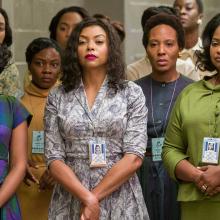equity
This Tuesday marked back to school day for my two boys, who are entering fourth and sixth grade at an Episcopal school that welcomes students of all faiths. The annual rite — which for our family always seems to involve the Mission: Impossible-style task, led by my wife, of getting all the right books and school supplies in time — left me with mixed feelings, which I suspect many fellow parents share. On one hand, I am excited for all the new school year offers my kids: new teachers, new friends, a new season of athletics, and all the other extracurricular activities that bring my kids so much joy. On the other, I feel the weight of a mounting crisis in our nation’s education system, especially in public schools, where the pandemic revealed such deep and long-standing racial inequities.
My professors in journalism school taught me to avoid passive voice as often as possible. They taught me that passive voice gets in the way of giving readers a clear view of who did what. Passive voice may be innocuously overlooked in many instances (for example, in this sentence, I didn’t tell you who was doing the overlooking), but more often using it risks confusion and obscurity — and these aren’t exactly journalistic values.
It is painful to know that here in the U.S., some states have vaccines that are going unused when vaccine shortages exist around the world.
In two stunning interactive visualizations, individuals are able to examine workplace diversity state by state - controlling for factors such as race, sex, and occupation. One visualization ranks states according to representation, with red and green bars showing what percent under and overrepresented certain populations are in relationship to their presence in the labor force. The other visualization allows users to compare states - giving a clear breakdown of representation at each occupation level.
Liberty and freedom aren’t fancy words or individual guarantees. They’re a process that requires everyone’s participation. We can’t have liberty and justice for all until we’re willing to see the injustice and the lack of liberty all around us, and commit ourselves to doing something about it.
“Here at NASA, we all pee the same color,” says Harrison.
But this scene never happened. Harrison never took a crowbar to a “Colored Ladies Room” sign. He never solved Johnson’s dilemma of having limited accessibility to a legal bathroom. Harrison’s action is a fabrication framed as history, one that could easily be recognized as an insidious white savior narrative created and advanced by the white people who made the film.
Black Americans’ educational equality has improved in the last year, but college graduation rates and access to high-quality elementary and secondary education remains a problem, according to a major survey by the National Urban League — which wants Congress to ramp up early childhood education and provide more federal aid to black college students.
DESPITE APPEARANCES, economics is in essence a very personal and fundamentally moral discipline. It is nothing short of the web of our material relationships with one another and with the natural environment. Economic relationships have personalities and personal histories. Inescapably, these relationships physically manifest our social and spiritual values.
Our language expresses this duality. “Values” are both moral principles and economic measures. “Equity” is defined both as a financial interest in property and as fairness or justice. The root of “property” is also the root of “propriety.” But perception and practice often reflect a division between them.
WE OWE A lot to Anne-Marie Slaughter. Last summer, the Princeton University professor’s Atlantic article “Why Women Still Can’t Have It All” kicked off an overdue, protracted national-scale debate on the difficulty of juggling the demands of professional success and committed parenting, the likes of which we haven’t had in a while. Shortly after Slaughter’s polemic hit newsstands, Marissa Mayer, just 37, was named CEO of Yahoo!, becoming the youngest CEO of a Fortune 500 company at the time and stirring controversy when she revealed that she was seven months pregnant. (Months later, she banned telecommuting companywide and was sharply criticized by some as being “anti-parent.”)
Then, Facebook COO Sheryl Sandberg got in on the action, publishing in March the ambitiously titled Lean In: Women, Work, and the Will to Lead. In the following months, it sat at the top of bestseller lists, with staggering sales triggering multiple printings. Sandberg, one of the wealthiest women in the world, donates all related profits to her newly established nonprofit, also called Lean In, encouraging women to form consciousness-raising Lean In Circles, in which they’ll discuss money and maternity.
Suddenly, there was a lot of estrogen in the air. A year into this cultural conversation, we’re still trying to make sense of what it all means.
First, a caveat. I don’t know anyone, woman or man, naïve enough to believe that any of us can have whatever “it all” entails. When Slaughter’s indignant article set off a firestorm about the impossibility of work-life balance, I was happy (as I always am) to witness a (mostly) thoughtful discussion unfold. But I was and still am miffed that anyone thinks women were sold a false bill of goods. Who was that mightily influential yet terribly mysterious person who promised us everything we ever wanted? How did we let him (it must have been a “him”) get away with spreading such a vicious lie, and why do we allow it to persist?
It’s a good sign we’ve entered the election silly season when pundits are arguing against “fairness.” What’s next, apple pie? (Motherhood, of course, is already a battleground of the “mommy wars”—Lord help us!)
The Democrats are trying to take the pro-fairness side of the debate, in particular around the issue of tax rates for the wealthiest Americans. The so-called Buffett Rule—named after billionaire Warren Buffet, who pointed out the injustice of his paying a lower tax rate than his secretary—became a key talking point the week before April 15.
Here’s how President Obama put it: “Right now, the share of our national income flowing to the top 1 percent has climbed to levels we haven’t seen since the 1920s. And yet those same people are also paying taxes at one of the lowest rates in 50 years. That’s not fair.” (The Occupy movement arguably deserves most of the credit for that framing of the issue.)
The president’s political opponents were quick to dismiss the focus on tax fairness as campaign rhetoric aimed more at the fall elections than any meaningful policy goals. It’s a safe assumption that pretty much anything between now and November has that partisan goal in mind, and—perhaps not surprising—fairness polls well.
But the critics didn’t stop there. Conservative columnist Charles Krauthammer, for instance, called the Buffett Rule “nothing but a form of redistributionism,” and said that focus on the tax fairness issue “is an exercise in misdirection.” Minority Leader Mitch McConnell said that having the rich pay a higher tax rate “won’t take a single person off the unemployment line.” (It also won’t end the war in Afghanistan, he didn’t add.) Others brought out the tired accusation of “class warfare.”
Adam Phillips is a Evangelical Covenant Church minister and director of faith mobilization for the ONE Campaign, www.one.org.
This video is the latest installment in an ongoing series at God's Politics where we've asked leading clergy, writers, scholars, artists, activists and others who self-identify as "evangelical" to answer the question, "What is an Evangelical?"






